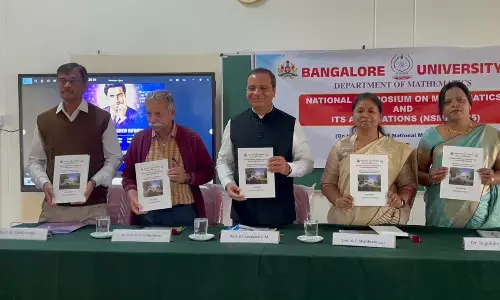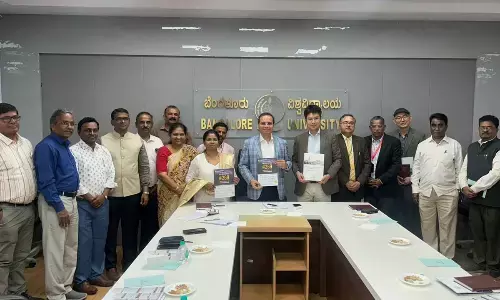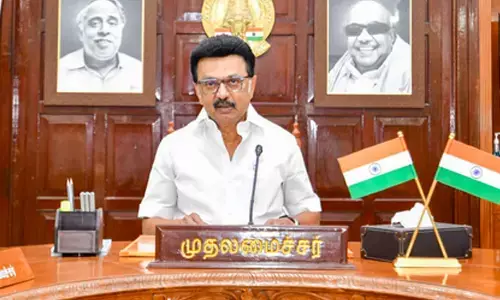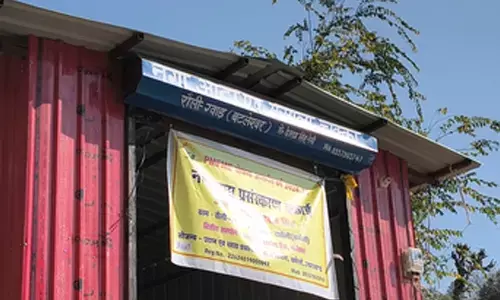Online frauds a headache for Delhi cyber cell

Cracking cases of online cheating and cyber frauds are proving to be the biggest challenge for Delhi Police despite advanced software available in the market. More than 75 per cent of cases registered with the cyber cell last year remain unsolved while criminals in the field seem to be making better use of these software to hoodwink cops.
New Delhi: Cracking cases of online cheating and cyber frauds are proving to be the biggest challenge for Delhi Police despite advanced software available in the market. More than 75 per cent of cases registered with the cyber cell last year remain unsolved while criminals in the field seem to be making better use of these software to hoodwink cops.
The data compiled by Delhi Police states that out of 327 cases registered from 2017 to November 30, 2018, the probe was concluded only in 71 (21.7 per cent). Meanwhile, out of the 160-odd cases registered, the cyber cell managed to complete investigations in only 26 cases in 2018.
According to the police 'e-wallet skimming frauds' and fake customer care cyber frauds whose numbers are on the rise and are currently ruling the charts of all cyber crimes known so far.
Speaking about the modus operandi of this trending cyber fraud, a senior police officer said: "If a person is posting an advertisement of his product on OLX to sell it, the fraudsters notices it and contacts the buyer and shows interest in purchasing it. Over the phone, the unknown buyer will ask the seller to download a particular e-wallet application and accept the request which he will send from the other end."
After getting the details of QR code and reference number of the buyer, the sender sends a link which asks for approval and once it is clicked, messages of money withdrawal from the buyer's e-wallet and bank account start dropping in and the fraud gets executed, said the officer.
Most of the e-wallets are linked with credit/debit cards or bank accounts. So once the miscreants get access to the account, it is a piece of cake for him to get away with the money without the victim knowing about it, the officer added.
According to a cyber expert, it is very difficult to detect high-tech advance softwares that have accesses and re-routes from multi-countries, but the actual hacker has an ability to hack websites, bank accounts and e-commerce sites just by being a few metres away.
It is very difficult to access IP addresses from one country to another countries and catch the accused who stays in the domestic country.
Delhi Police officers have put the blame for the delay in investigations on getting information from websites, internet service providers, social media portals and telecom firms.
However, sources said the limited technical knowhow of cyber cell members is proving to be an obstacle and resulting in slowing the investigation process.
Recently the unit busted various cybercrime modules ranging from Bitcoin cons to illegal Ethereum rigs. However, the criminals are coming up with new means to dupe people.
"The criminals are one step ahead of us and are finding new softwares so that it becomes a task for the cyber cell to trace them. However, the unit will soon have has access to some of the latest technology, including retrieving data from a damaged hard disk or mobile phone and they in the process of acquiring more including more sophisticated software for social media analysis," the senior officer added.
Officials also stated that criminals, terrorists and antisocial elements are using social media websites and other public platforms for conversations to plot their activities. At present, Delhi Police do not have any means to extract the content available on the web and convert it into meaningful data to identify criminals or trace their conversations.
"The problem which we have been facing is that it takes time to get approvals and access to information from the tech giants such as Facebook and Twitter as the service providers don't share information easily. Recently, WhatsApp had submitted an affidavit in a city court that their encryption software is such that they can't share information leading to delay in investigation," the officer said.
The tracking of IP address has also become a task for the police, as there are websites, applications and service providers that provide VoIP numbers and they don't share information with the police, he added.
VoIP is a software which enables people to use Internet as transmission medium wherein the caller can use an Indian number but which will show as an international number.
Recently, Delhi Chief Minister Arvind Kejriwal received two threat mails on his official email. However the police have failed to crack or get a break through in that case.

















